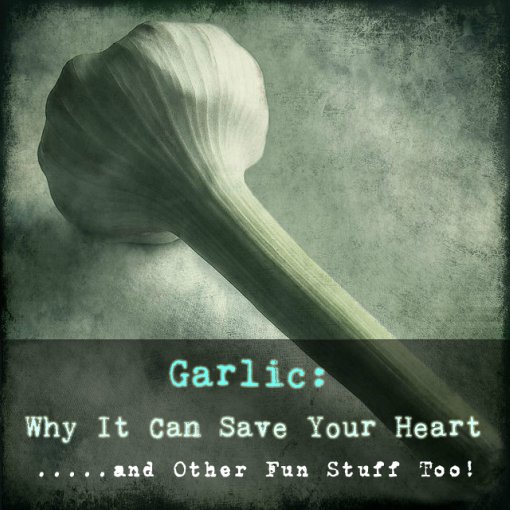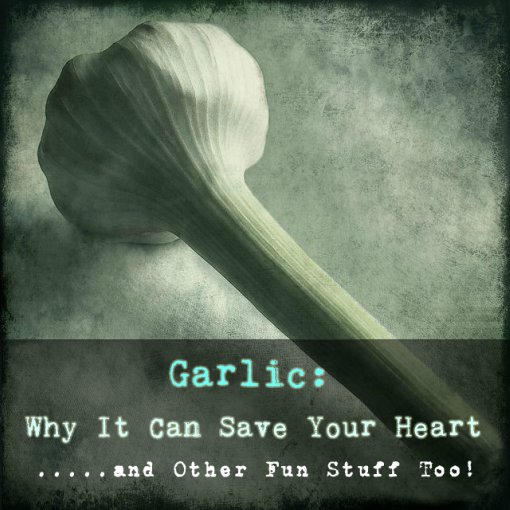Christina asks:
I really appreciate your blog and all the research you do before recommending a product. I was hoping you might do a blog on garlic supplements – like Kyolic Garlic. I don’t know if I’m wasting my money taking aged garlic.
Sure!
In addition to EATING garlic, I always love the chance to dig into a new botanical and decipher what it might be useful for.
My personal experience with garlic predates my love of supplements, and I have quite a few memories from my socially oblivious youth gnoshing down on garlic and then persevering through a variety of awkward moments while I tried to conceal my gastrointestinal issues, somehow failing to connect the dots between eating one and having the other.
In fact, my most noxious alimentary moment came when I innocently nibbled on an ENTIRE CONTAINER of roasted garlic that you get at the grocery store deli for an afternoon (god, what was I thinking?) and then turned my father’s 5000 square foot house into an uninhabitable gas chamber the following night. The sulfuric fumes were suffocating.
Luckily I was staying by myself that night.
But anyways…….
[amd-zlrecipe-recipe:6]
What Is Garlic Good For?
The question of whether or not you should take a garlic supplement depends on what you’re taking it for and what else you’re eating in your diet.
Garlic is uniquely healthy in general, and has proven clinical benefits for particular health issues. It also has close substitutes which might render it unnecessary if your diet’s okay.
Garlic’s medicinal benefits apply to the following areas:
- Improving LDL, HDL and total cholesterol
- Improving antioxidant status
- Improving certain types of immune cell function.
The latter two reasons are probably why it got its reputation as a disease fighter in the early days when they used it to fight off witches. The first one was a more recent discovery when researchers were looking for other botanicals to combine with CoQ10 to prevent heart disease.
Sulfur: It Does A Body Good
The lion’s share of benefits from garlic come from its ability to donate sulfur (the same part of garlic that makes you farty).
The more jargon-y term for allicin is an organosulfur compound, and they’re also found in other vegetables that give you bad breath: onions, leeks, etc.
What does sulfur do?
For one, it gets used in a lot of proteins, which require the sulfur containing amino acids cysteine and methionine in order to function.
Secondly, sulfur acts as an important signaling molecule in the circulatory system, which is probably why it has some effect on your blood lipids. Sulfur helps reduce oxidation of the blood protein hemoglobin, which is probably the reason for its ability to inhibit platelet aggregation, which is an important risk factor for cardiovascular disease.
Thirdly, it increases the production of glutathione, a sulfur containing compound which is probably your body’s most widely used antioxidant. Your body has quite a few sulfur containing detox enzymes (like glutathione-S-transferase) that are important for clearing drugs and toxins out of your system. This is probably the reason for garlic’s ability to improve antioxidant status and certain types of immune cell activity.
Why You Need to Eat It. FAST.
Practically anything with sulfur in your body is unstable. The hydrogen sulfide molecules that regulate your circulatory system have a half-life of a few minutes inside your body.
Allicin (the biologically active compound in garlic) loses its mojo if it’s exposed to the air for about 16 hours. (If you’re paying attention, that should make you a little suspicious of garlic supplements). The enzyme that makes it degrades in an acidic environment (like your stomach).
It’s a good example of how difficult it can be to replicate the health benefits of fresh food. That garlic powder sitting in your kitchen cabinet probably has 1/20th the activity of the real thing. It shouldn’t be a surprise then that the quality of garlic supplements can vary widely.
If you’re interested in how to use garlic in a more day-to-day way, the Wellness Mama has a good write-up on how to use garlic.
How Much To Take and When
Most of the studies done on garlic typically use a dose of 600-1200 mg/day, often broken up into two doses. Luckily, this corresponds to what you’ll find in most OTC garlic supplements.
As for particular brands…..it’s hard to say. If possible it’s probably wise to avoid preparations that have traveled a lot of food miles due to the sensitivity of the active ingredients, but there’s no way of knowing where it came from by looking at the label. The vast majority of botanicals are imported.
The other problem is that allicin (the active component in garlic) isn’t actually formed until garlic is crushed, which allows it to be activated by the enzyme allinase. The big problem with allinase is that its deactivated by acidic conditions…..like what’s in your stomach. So you’re probably not making much allicin in your body. This is also why freshly macerated garlic is probably the best way to go if you can manage it.
What does this mean for you, prospective popper-of-pills?
It means you should make sure your garlic supplement comes in an enteric coated tablet. These are not broken down by stomach acids. It also means you should disregard any sort of garlic powder that comes in an open container. It’s probably DOA.
As for brands, the best one I know of is Garli-eze, which is made by the Nutra Products corporation. Its biggest benefit is that its produced with an alkaline buffer, which neutralizes stomach acids in the stomach long enough to allow allicin to form.
However, according to this paper, the journal article that verifies this result was published by the Plant Bioactives Research Institute. I couldn’t find it anywhere online. A google search offered little additional evidence. It’d be nice if they had more transparent IP to go along with their product claims.
Do You Need It, Really?
Well, it can’t hurt. But there’s not a smoking gun that clearly links garlic with specific diseases. However, that’s true of practically anything that’s not a pharmaceutical drug.
My intuition is that a healthy person probably doesn’t need to bother. The studies done on heart health had the biggest effect on people who already had very high levels of LDL and total cholesterol, so garlic is a good starting point for someone who’s blood work is already in the red zone.
You should also keep in mind that the evidence for garlic and heart health is spotty. There are some very well conducted studies that did not show any effect whatsoever of garlic on cholesterol and blood pressure levels.
To me the immune functions of garlic are more generally applicable to “everyday” people due to its ability to goose glutathione production but there are no studies which clearly link it to XYZ condition.
As for product recommendations, with a gun to my head I’d choose Da Vinci labs’ garlic supplement. It’s the only one I know of that uses the Garli-eze brand and is standardized to contain a specific amount of allicin. Kyolic also creates a lot of garlic supplements, but to be honest I don’t know of any indication that their garlic is better than others, besides the fact that they make a lot of them.
None of the other brands seem to differentiate themselves very much.
And keep in mind that sulfur containing vegetables probably have similar health benefits, so if you’re chopping onions on your salad a garlic supplement is probably not necessary.
References:
Polhemus, David, et. al. “Emergence of Hydrogen Sulfide as an Endogenous Gaseous Signaling Molecule in Cardiovascular Disease.”
Silagy, Neil. “Garlic as a Lipid-Lowering Agent – A Meta Analysis”
Miron, Talia, et. al. “The mode of action of allicin: its ready permeability through phospholipid membranes may contribute to its biological activity”
Ankri, Serge, et. al “Anti-microbial Properties of Allicin from Garlic”
Heinrich, P. “Garlic: The Science and Therapeutic Applications of Allium Sativum”
Dhawan, V, et. al. “Garlic supplementation prevents oxidative DNA damage in essential hypertension.”



[…] Like garlic, broccoli’s useful because it injects your body with sulfur, which is a really important signaling molecule inside your body, and one that’s used extensively by the Killer P’s. (This is the reason garlic and broccoli have similar health benefits). […]
LikeLike
[…] This is likely due to the fact that it donates sulfur, which is an important building block for antioxidants and various signaling pathways in the body. […]
LikeLike